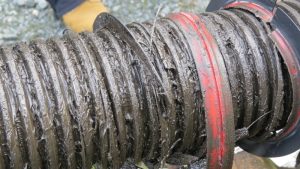Product liability for machines
Expert opinion in product liability cases in the field of “machinery, mechanical engineering and industrial equipment”, if a party has been damaged by a product defect.

Product liability under the (german) Product Liability Act (ProdHaftG)
With machines, in mechanical engineering and with industrial plants, there are always problems that result or should result from product defects. “Product liability for machines” requires an examination by experienced experts with a substantiated expert report.
Overview
Check product liability for machines and systems
Reasons for liability under the Product Liability Act
- the different (technical) error types
Identifiy product defects
Manufacturers are liable for their products regardless of fault if:
- the damage is the result of a defective product or
- the fault is causal for the damage (double causality).
Product liability Technical inspection of machines and industrial plants according to ProdHaftG
Product liability under the Product Liability Act (ProdHaftG) plays a crucial role in the manufacturing industry. The technical inspection of these possibly defective products by publicly appointed and sworn experts takes on particular importance, especially in view of the potential technical defects that may not only affect the agreements between the purchaser and the manufacturer, but may also have other reasons that affect productivity.
The Product Liability Act (ProdHaftG) in Germany sets out clear grounds for liability for manufacturers that may arise in connection with technical defects. These defect categories are critical because they are the basis for liability claims and are intended to ensure that products meet high safety standards. The main types of defects considered under the ProdHaftG are:
- Development defect / design defect: This defect occurs when a product has defects already in the development or design phase. This means that there was an error in the product concept or planning from the very beginning. Such an error can have serious consequences, as it manifests itself in the entire production and in all manufactured units.
- Instructional errors: Another important aspect of product liability concerns errors in product instructions or warnings. If a product is not properly or insufficiently labeled, this can lead to improper use and potentially dangerous situations. Manufacturers are required to provide clear and comprehensive instructions for the safe use of their products.
- Error in product monitoring: This error concerns the monitoring of products after they have been launched on the market. Manufacturers must ensure that they monitor products on a regular basis to identify potential safety issues or quality defects at an early stage. If they neglect to do this or do it inadequately, there can be serious consequences.
- Manufacturing Defects: Manufacturing defects occur when a product is produced defectively during the manufacturing process, even though the original design was correct. This can be due to faults in the production line, material problems or human error. Manufacturing defects are often the immediate cause of product failures and safety hazards.
The consequences for manufacturers if one or more of these errors are confirmed can be significant. This includes potential serial failures and recalls to remove at-risk products from circulation and ensure consumer safety. However, such measures usually involve significant financial costs, including recall costs, legal fees, and possible compensation payments to injured parties.
In summary, the Product Liability Act plays an important role in holding manufacturers accountable and ensuring that the products they produce meet the highest safety standards. At the same time, in the event of proven faults in a machine or technical system, legal action may be taken against the manufacturer / dealer if the machine ordered does not meet the agreed requirements.
Practical knowledge: What is this article about?
Increasing competitive pressure and shortened product cycles increase the risk of product defects in mechanical engineering. This can lead to product liability claims against the manufacturer or to the purchaser having to assert claims for damages against suppliers themselves. The text also discusses examples of product defects in mechanical engineering.
Product liability for machines due to product defects
Read a detailed article on the topic.
Expert reports clarify technical issues and discrepancies
A substantiated expert opinion, prepared by an experienced appraiser, can effectively help to clarify differing views between purchasers/operators and manufacturers/suppliers with regard to technical agreements and deliveries. This expert opinion, based on objective expertise and comprehensive specialist knowledge, provides an independent assessment and analysis of the factual situation. It serves as a reliable basis to
- Settle disputes,
- Eliminate ambiguities and
- to find fair solutions.
As a result, such an expert opinion promotes efficiency and transparency in technical contract matters and helps to improve business relations between the parties involved.
Important:
Preservation of evidence with an on-site visit and inventory are particularly important in order to be able to prove any product defects. In any case, this requires some experience in the forensic-technical field and also know-how in the legal work environment.
